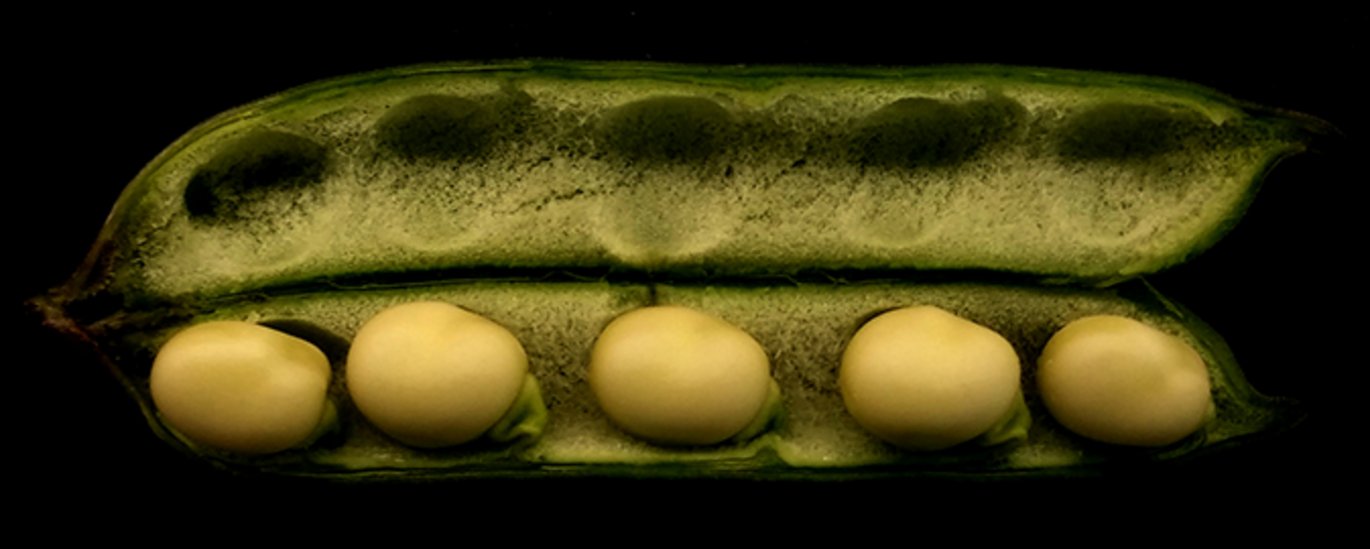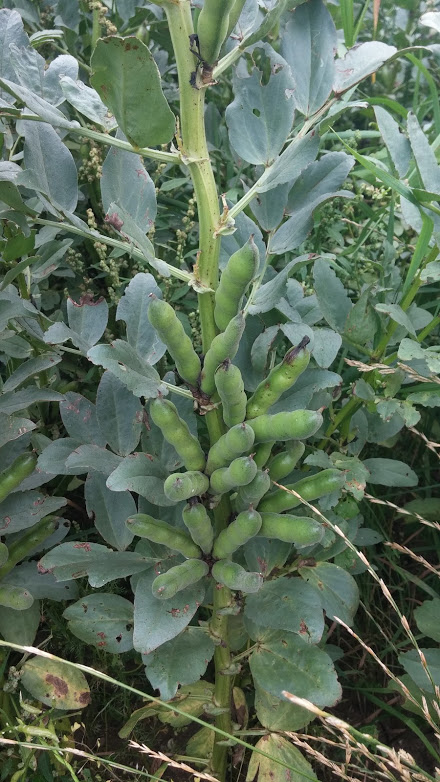New grant for improving faba bean yield and protein quality
With a grant of DKK 15 million (EUR 2M) from the Green Development and Demonstration Programme (GUDP) - a programme under the Ministry of Food, Agriculture and Fisheries of Denmark - Danish researchers and breeders will develop new faba bean cultivars for use as a locally grown alternative to imported soy protein.


During the past few years, researchers and breeders in Denmark have developed a platform for genomics-based breeding of protein-rich faba beans. These can be used in feed and food ingredients as a sustainable alternative to imported soy protein. With the new grant from GUDP of DKK 15 million for the project IMFABA*, the researchers will realise the great potential of faba beans by improving yield stability and protein properties. They will build on the expertise and genetic resources established in the NORFAB** project funded by a previous grant of DKK 27.5 million to the research group from Innovation Fund Denmark.
Faba beans are adapted to different climates, but produce especially high yields under moist temperate conditions. In Denmark, they can play a major role in substituting soy imports, and there is considerable interest from both farmers and grain and feed traders.
Stig Uggerhøj Andersen from the Department of Molecular Biology and Genetics, AU, who is the leader of the project, says:
“Drought is one of the most important factors that affects faba bean yield. To improve drought tolerance, IMFABA will utilise new methods for characterising drought response and root development in breeding and diversity material from NORFAB.”
In terms of feed quality, it is important to improve protein content, amino acid composition and protein digestibility in order to compete with soybean-based feed. Seed protein content, storage protein diversity and feed value will be investigated to increase protein and methionine content without compromising yield or seed size.
”In NORFAB, breeding efforts were initiated and inbred breeding lines were generated. IMFABA takes an important next step by selecting breeding lines for new synthetic varieties based on drought resistance and protein properties, while also providing a basis for continued improvement of these traits in future breeding programs” concludes Stig Uggerhøj Andersen.
The project is carried out in a collaboration between researchers and breeders from:
- Department of Molecular Biology and Genetics, Aarhus University
- Center for Quantitative Genetics and Genomics, Aarhus University
- Department of Plant and Environmental Sciences, University of Copenhagen
- Nordic Seed
- Sejet Plant Breeding
- Business Academy Aarhus
*IMFABA - (IMproved FABA); faba bean
**NORFAB - NORthern FABa; faba bean
The Green Development and Demonstration Programme (GUDP) investment: DKK 14,999,772
Own financing / other public financing: DKK 6,289,042
Total project budget: DKK 21,288,814
Duration of the project: 4 years
Official title of the project: IMFABA - Local and sustainable protein production with improved faba beans.
About GUDP
GUDP is a modern industrial support programme aiming at addressing some of the key challenges facing the food industry and society as a whole. The challenges are to create greater sustainability and solve some of the climate and environmental problems facing society - while at the same time constantly improving the economy so that the food sector can continue to create growth and secure jobs in Denmark.
Read more about GUDP (in Danish)
For further information, please contact
Associate Professor Stig Uggerhøj Andersen
Department of Molecular Biology and Genetics
Aarhus University, Denmark
sua@mbg.au.dk – + 45 8715 4937
